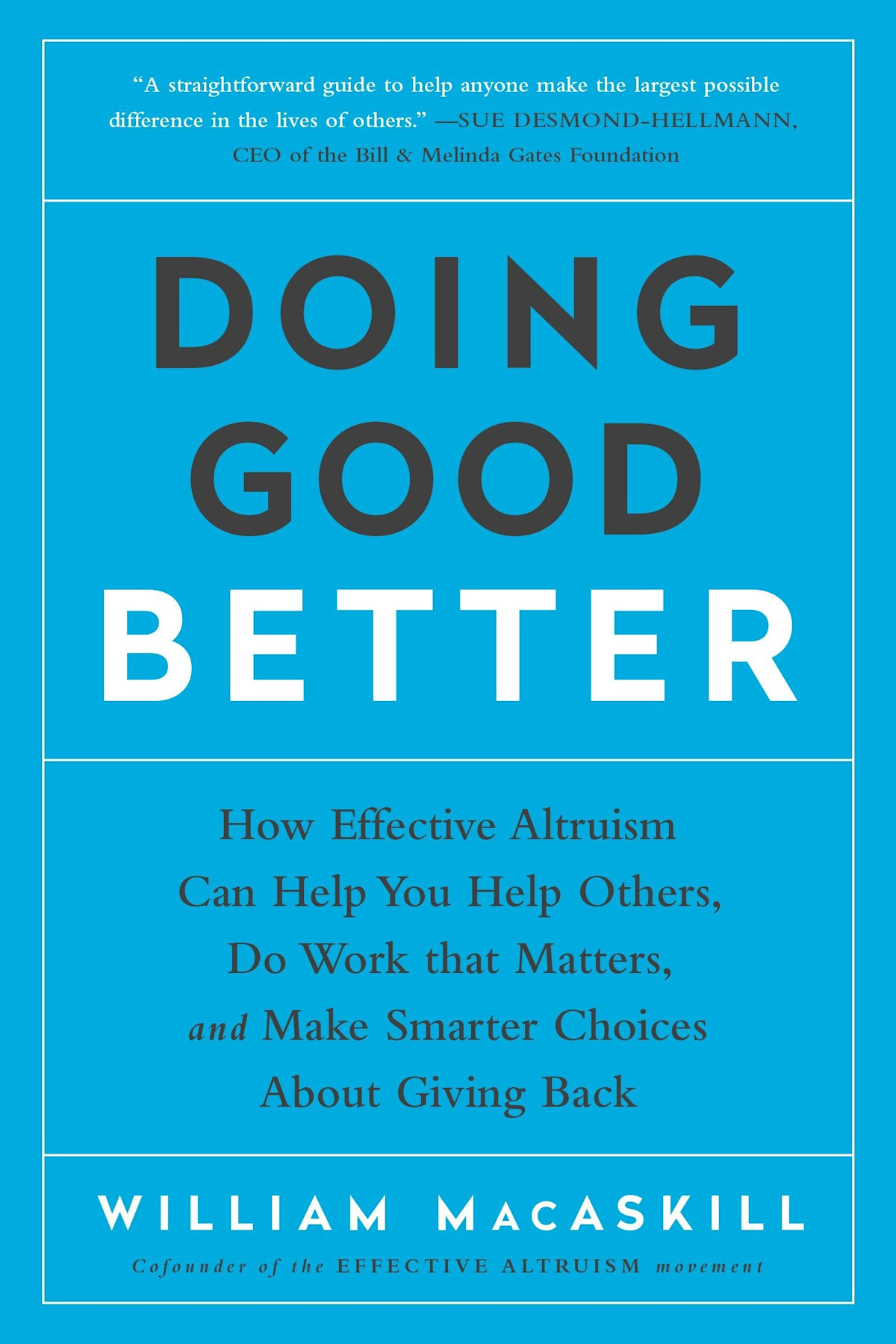I didn't realize that donating to charity could be an actuarial exercise! Yet after reading Doing Good Better by William Macaskill, I've realized yet another application of this skill set.
The central argument of "effective altruism" is that when it comes to doing good, some initiatives are not only better than the alternatives, they are orders of magnitude better, and those are the ones we need to support.
Let's say you want to provide an additional year of school to a girl in Africa, so you donate $1,000 to a certain cause.
- One group gives cash to a single girl, and you end up funding 0.2 years.
- Another provides scholarship incentives, and you can fund 3.0 years.
- The next group supplies uniforms, and you can fund 7 years of education.
- The last group funds deworming medicine, and you can fund 139 years of education.
Deworming gives you waaaay more bang for your buck. This ROI type of calculation is only the beginning of quantifying charity.
Related to the ROI is the concept of absolute vs. relative difference and marginal utility. What is the benefit of an additional $1 per day? The answer is obviously quite dependent on your baseline. For someone making $100, that is a 1% incremental change. For someone making only a $1, they've doubled their income.
Accordingly, MacAskill argues to contribute to less saturated causes, where the marginal value of an additional thing (whether a dollar, or an article of clothing) is relatively high.
MacAskill concedes that it may be hard to know the actual impact a particular initiative can have. And in the same way that an actuary can only protect a risk if it is measurable, you have to have assessments for charities:
- MacAskill looks at QALY's (quality adjusted life years) and the related DALY (disability adjusted life year) as standards for health related causes.
- He goes through a rigorous, heavily caveated, quite conservative approach that any actuary would approve of for estimating carbon emission reductions for environmental causes.
Next, I was pleasantly surprised when "Expected Value" popped up in the text. MacAskill uses the term as a theoretical framework for choosing how to place a charitable bet or pursuing a policy change. In essence it means that decision making should involve some estimates of likelihood or probability of effectiveness AND size of impact. For two equally likely causes, the one that has a higher impact will win.
And for those of us who appreciate these things, this type of metric is especially fun when fat tailed distributions start to show. The calculus of maximizing Expected Value can start to tilt when you have global problems with potentially huge consequences. To frame it another way, some interventions, although they may be a long shot, have such global or enduring impacts that they justify a contribution.
Other important concepts that aren't as arithmetic include the concept of consideration of second order events. Particularly when interventions displace something local. In this light, things like sweat shops should not be removed when they are the highest paying and best income source available, and supporting fair trade labelled goods may be cost restrictive in some developing areas.
Ultimately, the ideal target for aid, according to this framework is something that is:
- Solvable (likelihood element of expected value)
- Large in scale and effective (impact element, a.k.a severity of expected value. ROI concepts)
- Neglected (high marginal value of an additional resource)
While all this math has been a real treat, the ethics are admittedly sticky. The calculations are cold when they tell you that making a donations that supports research for your grandmother's rare disease is waste of resources compared to how it may be otherwise used, and the amount of different. This mode of utilitarianism gets personal real quick.
As a counter argument, MacAskill is suggesting that effective altruism is simply a framework. It does not demand or require personal sacrifice in order to serve the common good. It is more of an opportunity than an obligation.
Finally, as a thought for actuaries, how can we provide additional insights into these considerations? We have tons of expertise the way that we evaluate asset portfolios on a risk neutral basis, or look at diversification of risk, or optimization problems, or even understanding of catastrophic events, not to mention underlying data and experience with mortality, morbidity, and other naturally occurring hazards. Can we do more than simply protect from financial loss, or secure future income? Can we help support and discover organizations that will make the world a better place? Can we do good, better?
For much more in depth discussion - follow the Key Ideas series on the 80,000 hours website.

No comments:
Post a Comment